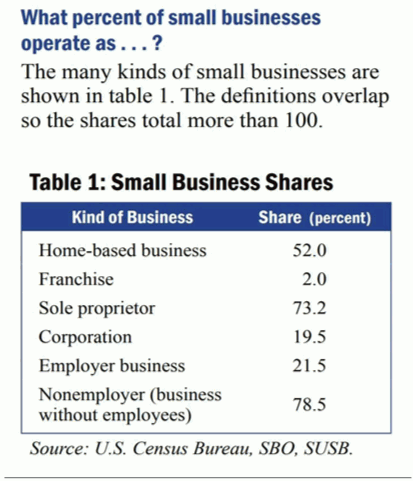5 Smart Ways to Position Your Small Business for Success

Photo: Pixabay
Today we will be discussing the Smart ways to position your small business for success.
OUTLINE
- Introduction
- What is a Small Business?
- Small Business is Big Business (no of people it employs plus revenue it generates annually)
- Some Key Small Business Statistics
- 5 Reasons Why Small Businesses Fail
- 5 Reasons Why Small Businesses Succeed
- Why You Should Fail Proof Your Small Business
- 5 Smart Ways to Position Your Small Business for Success
- Conclusion
Introduction
Learning how to position your small business for success will help you succeed in business long before you ever get started.
From ideation through market survey, writing an effective business plan, all the way to execution; how to run a successful business is top of mind for any serious business person, whether you own a small business or head a multinational organization.
Truth is, there’s a plethora of factors that influence small business success, some beyond your immediate control, e.g Google or Facebook Algorithms and how their constant flux affects SEO and marketing campaigns.
However, there are factors within your control that you can tweak to achieve success in your small business. In this article we will explore 5 such factors and learn how to use them to our advantage,
But first,
What is a Small Business?
When we hear “small business” two things come to mind:
- a company with few employees or
- a company making relatively lower average profits
But some companies appear to be redefining business size classification.
As of 2012, Instagram had 13 staff (12 pictured below) when it was bought for $1b by Facebook.
Sounds like a big small business.

Photo: Business Insider
According to the Office of Advocacy, a small business is an independent business with fewer than 500 employees.
The following table from the SBA shows small business size classification for specific industries based on size of annual receipts (in $m) and employee size.

Source: SBA Size Table
Furthermore, a US business is said to be small if it meets certain other criteria like:
- has a place of business in the US
- is organized for profit
- operates primarily within the US or makes significant contributions to the US economy through payment of taxes or use of American products, materials or labor
- is independently owned and operated, etc
Another key small business characteristic is how small businesses are financed. Mainly through owner savings, loans from friends and family, commercial lenders, bonds, stock etc.
In reality, small business is actually big business in terms of reach, impact and spread.
Let’s check out
Some Key Small Business Statistics
A 2012 report by the SBA Office of Advocacy has the following to say about small-scale businesses, they make up:
- 7% of US employer firms,
- 64% of net new private-sector jobs,
- 2% of private-sector employment,
- 9% of private-sector payroll,
- 46% of private-sector output,
- 43% of high-tech employment,
- 98% of firms exporting goods,
- 33% of exporting value, etc
There are other interesting facts and figures that capture the small business life cycle.
Speaking of business life cycle, here are
5 Reasons Why Small Businesses Fail
Some startups pack up, others move up, yet some plateau for various reasons. Following are some reasons why small businesses fail.
- Lack of sufficient startup funding
- Lack of innovation
- Poor accounting
- Fiscal irresponsibility, and
- Poor leadership
Which leads us to
5 Reasons Why Small Businesses Succeed
Many Mainstreet firms started indoors or in the garage before moving up. Indeed every big business today was a small business yesterday.
Following are 5 reasons why small businesses succeed
- Sufficient startup capital
- Innovation
- Proper financial management
- Accountability, and
- Good leadership
Small Business Successes vs. Small Business Failures
The following chart from the Bureau of Labor Statistics shows business birth and churn rates from 1999 to 2010.

From the charts, we notice that a very large percentage of startups packed up between 1999 and 2010. This is a disturbing trend.
Following are reasons
Why You Should Fail-Proof Your Small Business
The majority of small businesses are usually self-funded by founders or friends and family.
Consider the small business share of economy shown below:

Further reports by SBA indicate that as of 2016 there were 28.8m small businesses, representing 99.7% of US businesses.
Each business failure will have multiplier effects on the economy, one of which is job loss and the associated drop in quality of living for affected staff and their dependents.
So if you don’t want your small business to fail, here are
5 Smart Ways to Position Your Small Business for Success
-
Conduct Market Survey
Tools like Survey Monkey, Zoomerang, Survey Gizmo, KissInsights, Poll Daddy, Facebook Polls, etc can help you conduct relevant market surveys to establish product needs and market presence for your idea before you ever invest your first dime.
It’s a total waste of funds to invest in a no-market project no one really wants, especially in this era of changing consumer behavior.
An effective market survey brings benefits like
- idea (re)validation
- relevant feedback
- valuable customer input
- need establishment
- market identification
- knowing your customer
- creates product awareness in participants
- builds anticipation for launch in participants
Next
-
Choose a Great Business Name
Choosing the right business name can make a lot of difference to your bottom line. It’s a simple yet powerful aspect of business founding often overlooked.
The right business name can yield the following benefits:
- SEO
- Easy to spell as search query
- Easy to spell domain name URL
- Easy to spell as word of mouth recommendation
- Better memorization and recall
- Brand recognition and awareness
- Enhance advertising campaigns
- Attract new customers
Some things to consider when looking for business name ideas include:
- Ease of spelling
- Ease of pronunciation
- General availability of special/hybrid characters
- Availability of matching domain name
- Uniqueness
- Meaning of name in foreign languages/cultures if doing cross-border business
One of the easiest ways to generate a business name idea is via business name generators.
These easy tools ask certain leading questions and then suggest relevant business name ideas.
Other ways to generate company name ideas include:
- Crowdsourcing
- Polls/Survey
- Social Media
- Competitors
- Acronyms
- Word Blending
- Meditation, etc
Business name suggestions from friends and family can also prove powerful, they know you, your tastes and bent, so are able to suggest befitting business names for your small business.
Next is to
-
Get a Business Plan
A solid business plan is the backbone of successful businesses. It holds every other thing in place ensuring smooth, coordinated operations and growth for your small business.
According to Tim Berry, “… business planning offers real benefits to everybody in business.”
Why is it good to have a business plan you ask?
Some of the benefits of having a business plan include:
- Helps startups start right
- Gives you a birds-eye view of your business
- Eligibility for loans
- Required by investors
- Enables accountability emphasizes proper record-keeping
- Brings strategic alignment
- Gives stakeholders faith
- Highlights KPI
- Helps define roles, responsibilities, and reward
There are several small business plan templates that can help businesses like yours with this all-essential task. Check Google.
Next is
-
Go Digital
With proper market research, a good business name and an effective business plan in place, it is time to go digital.
You can begin your Digital Marketing journey with a good business website and a well-articulated Social Media strategy.
There are nearly 2 billion active websites and counting, plus more than 2 billion monthly active users on Facebook alone, some of whom may be interested in seeing your Facebook Page, Ad or shopping via your Facebook Store.
In fact, customers now expect the average business to have a presence on major social networks.
Some benefits of Digital Marketing include:
- Discoverability
- Online presence
- Showing up in search results
- Global Exposure
- Cross border opportunities
- 24/7 business
- Networking
- Collaboration, etc
And last but not least,
-
Business Productivity Tools
Business productivity tools, software, or apps help you achieve more with less effort, saving you time and money.
Whether for timekeeping, meetings, business intelligence or performance tracking, etc, business productivity tools are a great help.
Some of the benefits of using them include:
- Efficiency
- Proficiency
- Getting more done
- Less stress
- Saving costs
- Collaboration
- Business process optimization
- Improved business intelligence
- Business process monitoring, etc
Some important business productivity tools include:
- Todoist
- Evernote
- Trello
- Slack
- CoSchedule
- io
- Buffer
- HootSuite
- RescueTime
- MailChimp
- Constant Contact
- SEMrush
- Grammarly (Helps you write mistake-free newsletters for your marketing and email outreach)
And many more.
Conclusion
Every small business should grow, these steps will set you in the path of definite growth if you work hard at it.
Author Bio:
Amos Onwukwe is an AWAI trained Ecommerce B2B/B2C Copywriter featured in eCommerce Insights, Ecommerce Nation, Understanding Ecommerce, SmallBizCub, Successful Startup 101, Dumb Little Man, Huffington Post, Floship, Result First, The Next Scoop, SABTrends, BusinessTips.Ph to mention a few.




![Entrepreneurial Story of the Igwe Twins [Started as Office Cleaners]](https://thetotalentrepreneurs.com/wp-content/uploads/2016/09/Entrepreneurial-Story-of-the-Igwe-Twins-Started-as-Office-Cleaners-SpeedMeals-Mobile-Kitchen.png)